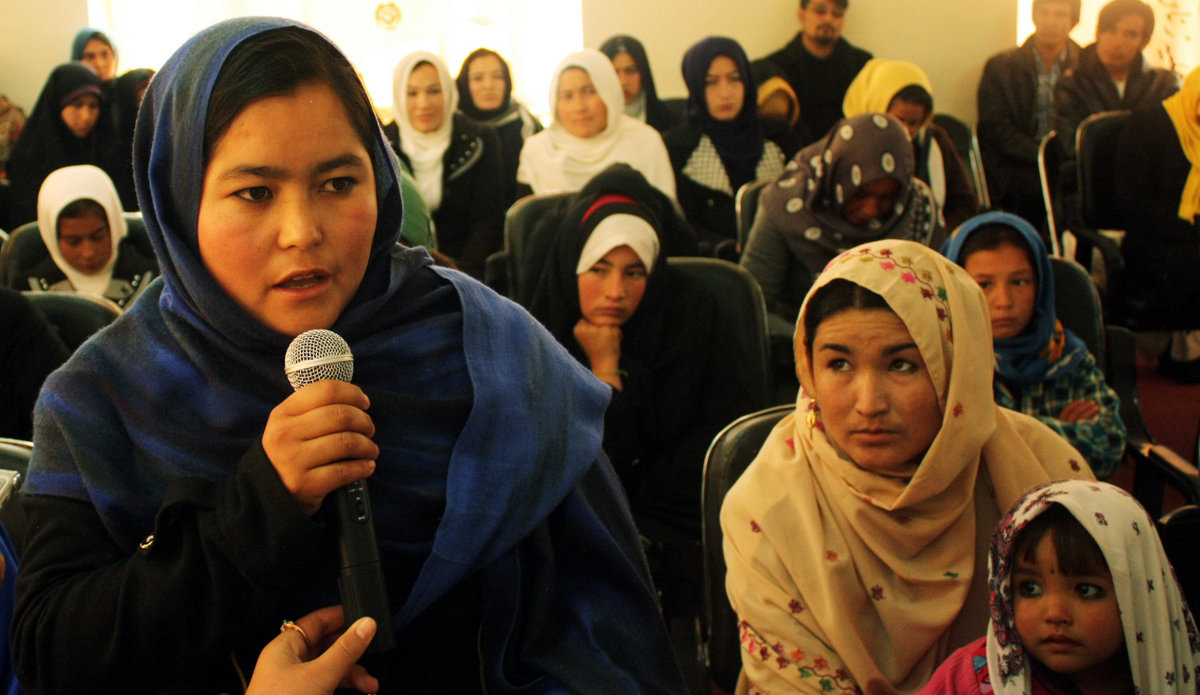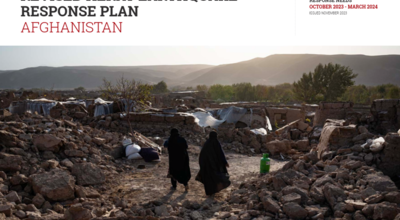Bamyan leaders strategize on women’s economic and political empowerment
BAMYAN - The empowerment of Afghan women and their increased participation in the country’s economic and political development was at the centre of a UN-backed event in the central highlights province of Bamyan.
The event, organized by the Bamyan regional office of the UN Assistance Mission in Afghanistan (UNAMA) last week, brought together advocacy groups and government officials to strategize on ways to empower Afghan women through increased presence in civil service positions.
Some three dozen government officials, civil society members, women’s rights activists and media representatives participated in the lively discussion, which was recorded and later broadcast to audiences in and around the provincial capital by local outlet Radio Nasim, one of many media outlets with which UNAMA works closely on a range of issues as part on the Mission’s nationwide partnerships with key television and radio stations.
The event was part of a series of broadcast symposia across the country, the objective being to enable women from remote districts to express their views to community leaders and learn about what the government is doing to enable women to play a more prominent role in all aspects of Afghan life, from the social to the political.
“The government has recently ratified a law on anti-harassment in government departments,” said Mohammad Ahmadi, the head of Bamyan’s Justice Department. “We are asking all departments and district governors to design training programmes for their staff on the anti-harassment law.”
Bamyan, well-known for its archaeological monuments, is also known for having a generally positive approach to women’s social and political participation. But certain unchecked harmful practices and lack of awareness about women’s rights have hindered the province’s potential to be a standout champion for women’s empowerment.
Masoma Khawari, the chancellor of Bamyan University, described how she is designing special classes for university students on women’s rights and gender equality. “Many years of war and discrimination against women have caused them to remain behind,” she said. “If we want to promote women’s employment in government, we must take special measures to support them with specific programmes.”
Statistics from the Department of Women’s Affairs indicate that 17.5 per cent of all government employees in Bamyan are women, with only a handful of them occupying managerial positions. The Afghan government has pledged to increase the presence of women in government institutions to 30 per cent by the year 2020. Currently, women’s participation countrywide is far below this target.
UNAMA supports the Afghan people and government to achieve peace and stability. In accordance with its mandate as a political mission, UNAMA backs conflict prevention and resolution, promoting inclusion and social cohesion, as well as strengthening regional cooperation. The Mission supports effective governance, promoting national ownership and accountable institutions that are built on respect for human rights.
UNAMA provides 'good offices' and other key services, including diplomatic steps that draw on the organization’s independence, impartiality and integrity to prevent disputes from arising, escalating or spreading. The Mission coordinates international support for Afghan development and humanitarian priorities.
 UN
UN








